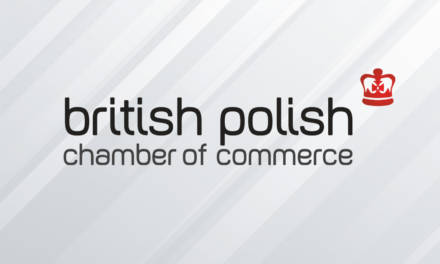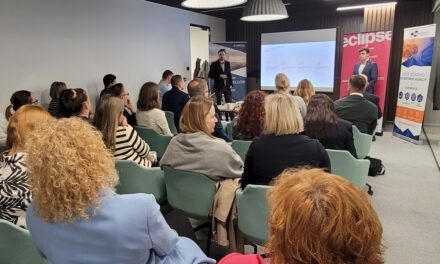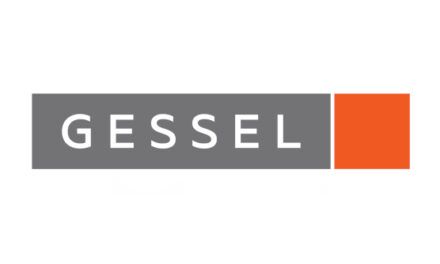
By Bartosz Kordecki, business director, Wunderman Thompson

Sustainability is one of the dominant trends we see in the economic world. Companies are embracing the subject for several reasons. For many, it is not a matter of choice but a necessity to comply with increasingly stringent regulations. For others, it is a marketing, branding exercise. For still others, it is a conscious choice of the path the business wants and needs to take. For some, it is a strategic decision – basing their business model on a responsible approach to social and environmental issues, the so-called sustainable business model. WPP is one of the leaders in the communications, technology, and media industries, which, through its network of agencies, helps brands undergo transformation and helps them achieve growth. So it was a natural step for the organisation to implement a responsible business model.
Designing and implementing appropriate procedures was probably less challenging for a company with an advertising and creative pedigree than for businesses from more traditional industries. Culturally, this was not met with resistance – it was rather natural and expected. Advertising-service companies have always rapidly adopted human rights, or environmental change. Although the identity grounding existed, for an organisation that employs tens of thousands of people worldwide, works for some of the largest and most recognisable brands, and is listed on the stock exchange, such a major organisational innovation is quite a challenge.
The WPP network has clearly defined goals in several key CSR areas. The primary goal is for network’s operations to achieve net zero by 2025 and for the supply chain to follow suit by 2030. WPP is presently undergoing an ongoing program of transformation, encompassing the realisation of its vision for campuses on a global scale. This aspiration entails relocating 85,000 of the staff to a minimum of 65 world-class, net zero campuses by the end of 2025, all powered exclusively by renewable electricity. Transparency is essential, so the company regularly publishes reports documenting the progress of the work. Other areas of focus include:
- Reducing waste and improving resource efficiency
- Gradual withdrawal of single-use plastics that cannot be reused, recycled, or composted across WPP offices
- Collaborating with clients to encourage initiatives addressing climate change and environmental concerns
More detailed plans and objectives follow the demands:
- 22 tonnes CO2e emissions per person from owned operations (Scope 1 and 2), a 32% reduction year-on-year and 73% reduction since our 2019 baseline (2021: 0.32 tCO2e)
- 28% absolute reduction in tonnes of CO2e (Scope 1 and 2) year-on-year and 71% since our 2019 baseline
- 83% of electricity bought from renewable sources (2021: 74%)
- $10bn coalition of leading advertisers – worth $10 billion in global advertising investment – to accelerate decarbonisation of the world’s media supply chain
- CDP climate change score maintained for the second year in a row
- 83% of electricity from renewable sources in 2022 versus 74% in 2021.
A strategic element of the overall system is the organisational structure and the people responsible for each area. As an agency, Wunderman Thompson has dedicated roles within its organisation that oversee matters at the agency level and ensure consistency with objectives and practices within WPP.
Ecology is not the network’s only area of particular concern. At the same time, it develops other programmes, demonstrating the organisation’s deep interest in social issues. One is Diversity and Inclusion i.e. ensuring diversity within the organisation. Currently, in WPP’s structures more than 40% of executive leadership positions are held by women. The Inclusion Council was formed to expedite transformation across WPP. Council members are selected to mirror the diversity of the organisation. Their mandate is to advocate for under-represented groups at the highest echelons of WPP, propose programs, policies, and initiatives aimed at systematically fostering more inclusive and diverse workplaces, contribute to leadership succession decisions, eliminate obstacles to progress, and aid in establishing ambitious goals for advancing under-represented talent. $16.2 million has been dedicated to racial equity and inclusion programmes since 2020. In addition, the company offers several educational activities, and some D&I training is mandatory for all employees.
Together with mentioned before green initiatives, other network’s activities play a crucial role in constructing a cohesive internal identity that underscores the significance of environmentally friendly policies within the organisation. These challenges are expected to WPP; most global communications and IT companies adhere to similar standards. The variations primarily lie in the speed of implementation and the extent of their application. Although environmental issues generally garner consensus on their importance, discrepancies may arise in other areas of social responsibility. A notable test was companies’ responses to Russia’s invasion of Ukraine, revealing a broad spectrum of reactions based on industry type or company origin. Responses ranged from indifference to expressions of support through humanitarian aid to more radical measures. An illustrative example of a firm taking a decisive stance was Heineken’s decision to sell its Russian companies for a symbolic €1. In contrast, WPP was the first communications holding company to suspend its operations in the Russian market following the outbreak of war, providing assistance to its employees and their families in Ukraine. Some of WPP’s agencies supported the initiative locally. Wunderman Thompson in Poland allowed its employees to allocate a whole workday for volunteering in refugees centres. They have also facilitated practical aid, including transferring computer equipment to many Ukrainian families, supporting education and work opportunities.
Climate issues and our attitudes towards them are also changing. A recent report, 2024 Consumer Trends, by research company Euromonitor, provides exciting insights; we learn that 64% of consumers tried to have a positive impact on the environment through their everyday actions in 2023, and 45% of consumers felt like they were personally contributing to climate change in 2023. However, the problem is that enthusiasm is waning because the results of these actions are not easily or quickly seen. They acknowledge that their eco-friendly choices contribute somewhat, but they recognize that substantial change requires a collective effort. Consequently, consumers are shifting the responsibility back onto businesses. Companies should uphold and promote positive behaviour.
Social responsibility, encompassing pro-environmental action, is (or should be) an integral component of the policy and strategy of any contemporary and ambitious company. What has become evident, however, is that having documented aspirations and targets or having stringent procedures and policies written down is insufficient. Companies are now primarily being held accountable for the tangible value their actions contribute. This reality is consistent in the professional services industry, where numerous areas for improvement also exist. 45% of professionals stated that their company intends to invest in certifications to prevent greenwashing in the next five years (Euromonitor International Voice of the Industry: Sustainability Survey, fielded February 2023).
In addition to global goals and actions, each WPP’s unit runs its local initiatives. Wunderman Thompson’s branches in Poland are relocating to modern office buildings equipped with many pro-ecological solutions. The team in Poznań has recently been based in an office building on Nowy Rynek. The building incorporates an innovative energy management system, reducing energy consumption by up to 50%. It relies on 100% renewable energy sources, incorporates grey water usage, and boasts a ventilation system ensuring 30% more fresh air. The Katowice team was relocated to the similar modern space of Face 2 Face building last year. On the social side, it is also worth mentioning just one of the many campaigns the agency has been running for several years. Shoebox is a charitable initiative that provides material aid to women in need. The campaign has already received considerable media attention in Poland and will be joined by other Wunderman Thompson offices.
The example of the WPP holding company shows that companies recognise the challenge and take it seriously. These initiatives showcase Wunderman Thompson and WPP’s dedication to environmental sustainability, social responsibility, and proactive response. The combination of eco-friendly policies, community engagement, and swift action in times of crisis illustrates their commitment to tangible, meaningful impact. However, we will only be able to see the real effects in a few years, when it will be possible to verify whether the objectives have been met.























